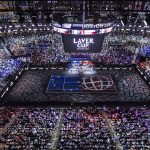Nike Inc. on Monday confirmed that is pulling out of the competitive swimsuit market because the sport is not part of its long-term strategy.
According to a prepared statement from spokesman Bob Applegate, “Nike has made a strategic decision as part of the companys long-term growth plan to focus efforts against its successful swimwear business at retai. We will continue to supply coaches and collegiate institutions under Nike sponsorship with competitive Nike swimsuits, including Nike Swift Swim that won a combined 15 Olympic medals and set 15 world records since its debut in 2003, but we will not invest in next-generation swim innovation which is not in line with our stated category growth strategy.”
The statement came after sources told CNBC last week that Nike is telling college swim coaches who have contracts with the company that it would no longer be developing gear for elite swimmers.
The move comes after more than 90% of swimmers who picked up a gold medal in Beijing wore a Speedo suit. Nike had told its endorsed Olympic swimmers, including Cullen Jones, Jason Lezak, Aaron Piersol and Brendan Hansen, that they wouldnt be penalized if they wore Speedos during the Olympics instead of Nike’s Swift model and all of them wore Speedo.
Nike is expected to continue to license the Nike name to Perry Ellis International, which sells non-Olympic performance and casual swimwear and products in the United States and Canada.
CNBC also quoted SportsOneSource data that showed Nike’s market share in swim, which includes product made from Perry Ellis, has dropped from its year-ago position. According to retail point-of-sale data compiled by SportScanINFO, a SportsOneSource research service, Speedo’s year-to-date market share of the performance swimwear business is now over 55.1% in the sports retailer segment, up from 50.3% for the 2007 YTD period.
The move could be a particular blow to swimmers seeking sponsorship funding to train. It’s unknown how aggressively Nike will endorse swimmers going forward once most of their deals run out at the end of 2008.















